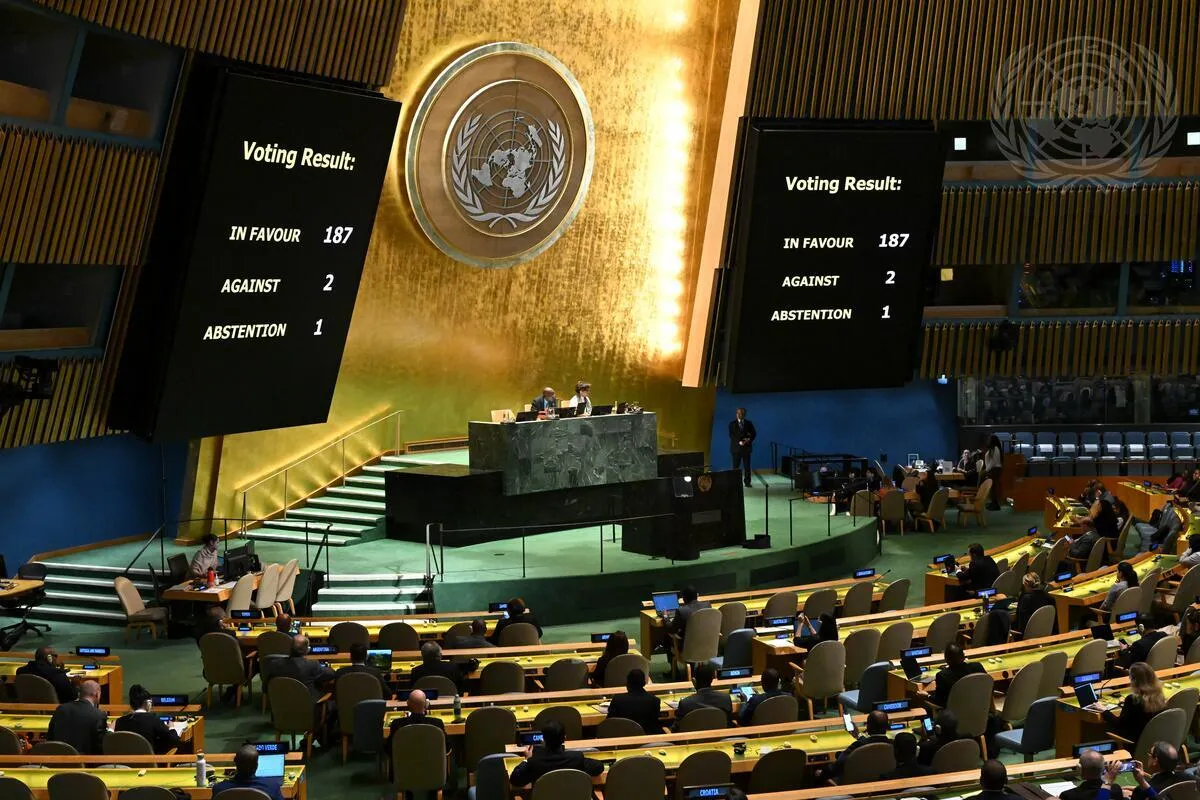While we are now less than one week away from the U.S. elections, the truly consequential events that will shape the future of the world are taking place on an entirely different stage. To the extent that citizens work to bring these substantive issues to the surface within their nations—rather than succumb to what seems possible given the available options—will the fate of not only the Collective West, but of the entire world be determined.
On Wednesday, Oct. 30, the UN General Assembly again showed the U.S. no longer has the mandate to be the supposed “leader of the free world,” as it voted overwhelmingly to end the U.S.’s 62-year blockade of Cuba—by 187-2. It’s perhaps not so coincidental that the only other country which voted with the U.S. against the lifting of the blockade was Israel. Though this vote occurs every year in the UN, today it’s happening in the context of a so-called “rules-based order” which has never been more discredited.
It comes only days after Israel’s Knesset voted to prohibit the operations of the United Nations Relief and Works Agency for Palestine Refugees in the Near East (UNRWA) inside Israeli and Palestinian territory, an agency for which there is effectively no replacement and whose removal will mean even further extreme suffering for the Palestinian people. If the Israeli decision is implemented “this would be a total disaster, it is like throwing [out] the baby with the water,” UNRWA Commissioner General Philippe Lazzarini told AP in an interview on Oct. 30. In an even starker comment, Lazzarini posted on X his Oct. 28 letter to the President of the UN General Assembly, prefacing that “Today, even as we look into the faces of children in Gaza, some of whom we know will die tomorrow, the rules-based international order is crumbling in a repetition of the horrors that led to the establishment of the United Nations, and in violation of commitments to prevent their recurrence.”
At the same time, the effects of these policies are not even benefitting the people and economies of the West. Germany is now approaching an outright precipice in its automotive sector, with Volkswagen having experienced a 64% collapse in net profit in September alone. In the U.K., taxes are being raised across the board to make up for budget shortfalls in one of the largest increases in years. In countries throughout NATO, budgets are creaking under the weight of ever-larger spending by their military-industrial-financial complexes, while their real physical economies suffer from years of underinvestment.
In addition, the world is hovering on the cusp of wars not seen in generations, as we face the prospect of global war erupting on two fronts. Unbelievably, that number is now approaching three, as Western leaders manically insist that North Korea must now be added to the list of countries to be confronted—which has now responded by testing another nuclear-capable ballistic missile. Is it really worth risking the survival of civilization to defend the integrity of this “rules-based order”?
Indeed, it’s beyond obvious that the only one “isolated” is the Collective West, whose “order” is now crumbling. As a result, everyone alive today is being confronted with a challenge magnitudes greater than any they have ever experienced before. It will not be reversed by an election, or by modifying the existing system. What’s required is a change in axioms, a change in thinking. Or as Helga Zepp-LaRouche has insisted, a new security and development architecture.
So don’t be content to settle for what seems like the options you’ve been given. Instead, take a leaf from the independent campaigns of Jose Vega and Diane Sare, who, along with other independent candidates, are spearheading an effort within the United States to bring this reality to the fore.







